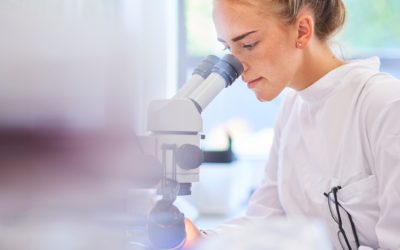In 2005, National University of Health Sciences welcomed the first class into its bachelor of biomedical science degree completion program. This year it is celebrating the program’s 10-year anniversary.
Initially offering 12 courses, the program now offers a full selection of over 56 courses in a variety of sciences and health career studies. Students can select from traditional laboratory science courses such as anatomy, physiology, chemistry and physics, or branch out into specialized classes such as sports performance nutrition, medical Spanish or diagnostic art.

“One milestone over the last decade was the addition of an optional emphasis in nutrition,” says Dr. Randy Swenson, vice president for academic services who helped create the program and remains dean of the NUHS College of Allied Health Sciences. “We plan to add additional emphases over the next two years and are exploring accreditation for additional undergraduate health science degrees.”
The bachelor’s program at NUHS grew out of the university’s prerequisite program that offered courses to students needing specific credits for entry into NUHS professional programs. “By adding a BS program, we knew we would recruit even more students into our professional programs,” says Dr. Swenson.
“A large number of our BS students do enter our chiropractic medicine, naturopathic medicine, acupuncture and oriental medicine programs. But we have progressively expanded the number of students who are here seeking a bachelor’s degree for entry into other professional programs in nearby medical schools,” says Dr. Swenson.
Previous BS graduates from NUHS have been accepted into physician assistant programs, doctor of osteopathy programs, medical school, dental school, advanced nursing programs, and academic master’s degree programs in the sciences. Others have entered careers in health care related industries such as the pharmaceutical, nutraceutical and medical equipment fields.
“A bachelor of biomedical science degree is so valuable precisely because it is so versatile,” says Dr. Swenson. “Instead of limiting their future choices, our grads find a wealth of opportunities open to them.”
“Our university is uniquely positioned to offer the advantages of graduate level faculty and facilities to our undergraduate students,” says NUHS President Joseph Stiefel. “In turn, our undergraduate students receive exceptional preparation for success in science and health care careers. The university benefits greatly when these students bring their NUHS degrees into their chosen fields and demonstrate the superior quality of their education.”




0 Comments